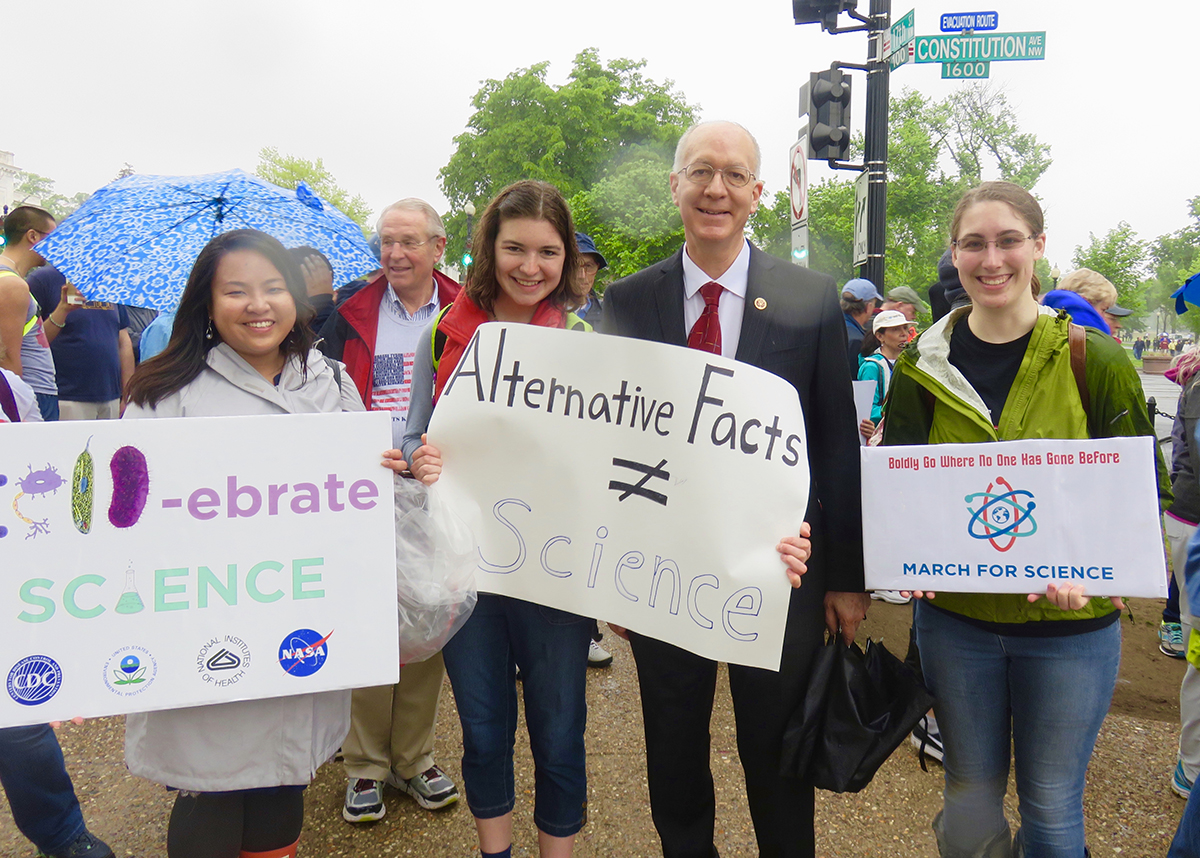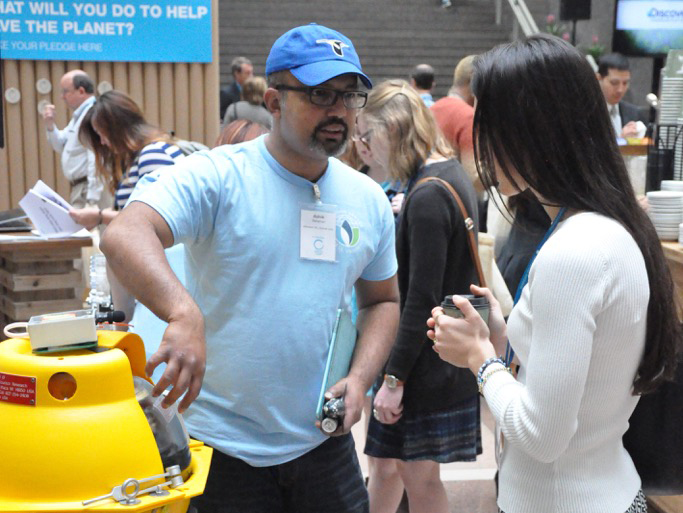More than 200 soggy students champion science in D.C. march
By Blaine Friedlander

More than 200 Cornell undergraduate and graduate students joined 40,000 scientists and boosters to champion knowledge and to promote a better future in the first March for Science in Washington, D.C., April 22.
“I have the power to advocate freely for something I believe in – well, that is an inestimable privilege,” said Francine Barchett ’20. “I had never been to a protest before. I almost expected to join a mosh pit of disgruntled protestors, but what I found instead was people of diverse backgrounds peacefully uniting around a cause we care about.”
Under rainy conditions, the scientists and advocates let their voices ring via posters, chants, hugs, chatting and sheer volume.
Barchett and her friends Heley Ong ’17 and graduate student Lauren Gilliland randomly met U.S. Rep. Bill Foster, D-Illinois, a physicist. He approached the Cornell students, as he enjoyed their signs, and said, “I’m the only scientist in Congress, and I would be honored to take a picture with you and your signs.”
He struck up a conversation with the Cornell students about his passion for science and how the U.S. desperately needs political leaders with scientific backgrounds.
Barchett agreed. “Science is important – and that is an underestimation. Science symbolizes creativity, free thinking, innovation, diversity and other keystone values we embrace,” she said. “Science needs bipartisan support and funding, so that the government and its people work from the same page.”
Before the march, buses of graduate students went to Washington early to speak with congressional officials and to attend science communication seminars hosted by the American Association for the Advancement of Science and the Union of Concerned Scientists.
At the seminars, the graduate students learned awareness of scientific jargon and how it can easily creep into describing science for a lay audience. “As scientists, we need to be clear and concise and, hopefully, somewhat relatable,” said Sabrina Solouki, a doctoral student in the field of immunology and infectious disease. She is a leader in the Cornell group Advancing Science and Policy, which organized the graduate student portion of the trip. “To communicate science, we learned to humanize research and make it relevant on a broader scale.”

The graduate students held a special networking dinner April 21 with guests Mark Bayer ’92, of Bayer Strategic Consulting; Meredith Gore, Ph.D. ’06, Jefferson science fellow for the U.S. State Department; and Bill Olbricht, Cornell professor of chemistry, currently on rotation as a program officer at the National Science Foundation. They explained science policy, fellowship opportunities and ideas for science engagement at the local and national levels, as well as science consulting and advocacy.
Concurrently, on the other side of Washington’s National Mall, professors, researchers and students participated in the Smithsonian’s Earth Optimism Summit, co-sponsored by Cornell’s Atkinson Center for a Sustainable Future.
Despite rainy, damp conditions for the march, the students cheerfully strode to advocate for knowledge as they constantly chanted, mingled with other students and scientists, and talked with the public.
Bill Nye ’77, best known as TV’s “Science Guy,” served as a keynote speaker at the main rally, held at the Washington Monument.
“Our numbers here today show the world that science is for all,” Nye said. “Our lawmakers must know and accept that science serves every one of us, every citizen of every nation and society. Science must shape policy. Science is universal. Science brings out the best in us. With an informed optimistic view of the future together, we can – dare I say it – save the world!”
Solouki reflected on the march and the weekend experience.
“I really felt a strong sense of community, as well as unity in general when I was marching. I felt especially proud to represent the scientific enterprise,” she said. “I marched to underscore the importance of informed scientific policy. Research is important for our economy, health care and, ultimately, the betterment of our society. Scientists are here and we have a voice.”
Media Contact
Get Cornell news delivered right to your inbox.
Subscribe